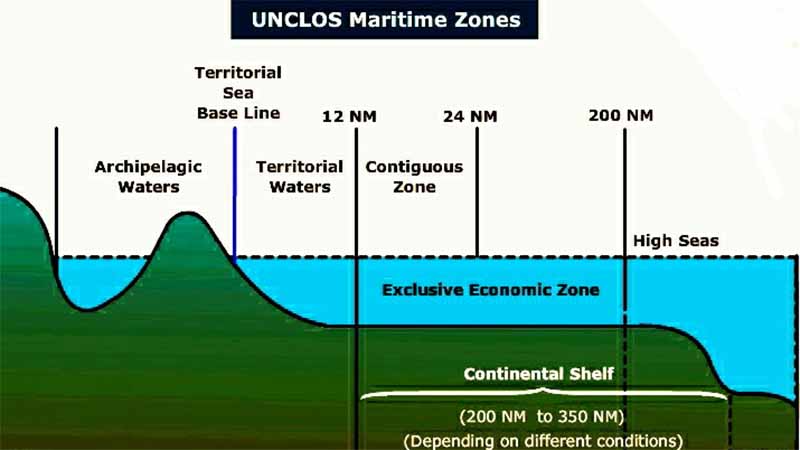Ahmedabad
(Head Office)Address : 506, 3rd EYE THREE (III), Opp. Induben Khakhrawala, Girish Cold Drink Cross Road, CG Road, Navrangpura, Ahmedabad, 380009.
Mobile : 8469231587 / 9586028957
Telephone : 079-40098991
E-mail: dics.upsc@gmail.com

UN High Seas Treaty
News: Post a decade of negotiations, the UN members have agreed (in New York, US) on the first-ever treaty – the UN High Seas Treaty, to protect the world’s oceans outside national boundaries.
What is High Seas Treaty?
“Treaty of the High Seas”, is an international agreement on the conservation and sustainable use of marine biological diversity of areas beyond national jurisdiction within the framework of the UNCLOS.
It places 30% of the world’s international waters into protected areas (MPAs) by 2030, and puts more money into marine conservation and new rules for mining at sea.
It provides for arrangements for sharing marine genetic resources, such as biological material from plants and animals in the ocean and requirements for environmental assessments for deep sea activities like mining.
The treaty can have benefits for society (pharmaceuticals and food) and will help reverse biodiversity losses and ensure sustainable development.
Need:
2/3rd of the world’s oceans are currently considered international waters/high seas but until now only about 1% of these waters have been protected.
Nearly 10% of marine species on the high seas were found to be at risk of extinction mainly due to overfishing and pollution.
41% of the threatened species are also affected by climate change (more CO2 absorption, more acidic, increased marine heat waves), and deep sea mining.
For example, Dugongs used to be common marine animals but now less than 1000 remain in the wild.
Concerns:
There were debates, particularly around what a marine protected area (MPA) is – sustainable use/fully protected from fishing, shipping and exploration activities like deep-sea mining.
Developing nations were disappointed by the limited funding options included in the text of the treaty.
If the MPAs are not properly connected, it might not have the desired impact as many species are migratory.
Way Forward
The treaty must be formally adopted and will enter “into force” once enough countries (~ 40) have signed and legally passed it in their own countries.

Address : 506, 3rd EYE THREE (III), Opp. Induben Khakhrawala, Girish Cold Drink Cross Road, CG Road, Navrangpura, Ahmedabad, 380009.
Mobile : 8469231587 / 9586028957
Telephone : 079-40098991
E-mail: dics.upsc@gmail.com
Address: A-306, The Landmark, Urjanagar-1, Opp. Spicy Street, Kudasan – Por Road, Kudasan, Gandhinagar – 382421
Mobile : 9723832444 / 9723932444
E-mail: dics.gnagar@gmail.com
Address: 2nd Floor, 9 Shivali Society, L&T Circle, opp. Ratri Bazar, Karelibaugh, Vadodara, 390018
Mobile : 9725692037 / 9725692054
E-mail: dics.vadodara@gmail.com
Address: 403, Raj Victoria, Opp. Pal Walkway, Near Galaxy Circle, Pal, Surat-394510
Mobile : 8401031583 / 8401031587
E-mail: dics.surat@gmail.com
Address: 303,305 K 158 Complex Above Magson, Sindhubhavan Road Ahmedabad-380059
Mobile : 9974751177 / 8469231587
E-mail: dicssbr@gmail.com
Address: 57/17, 2nd Floor, Old Rajinder Nagar Market, Bada Bazaar Marg, Delhi-60
Mobile : 9104830862 / 9104830865
E-mail: dics.newdelhi@gmail.com